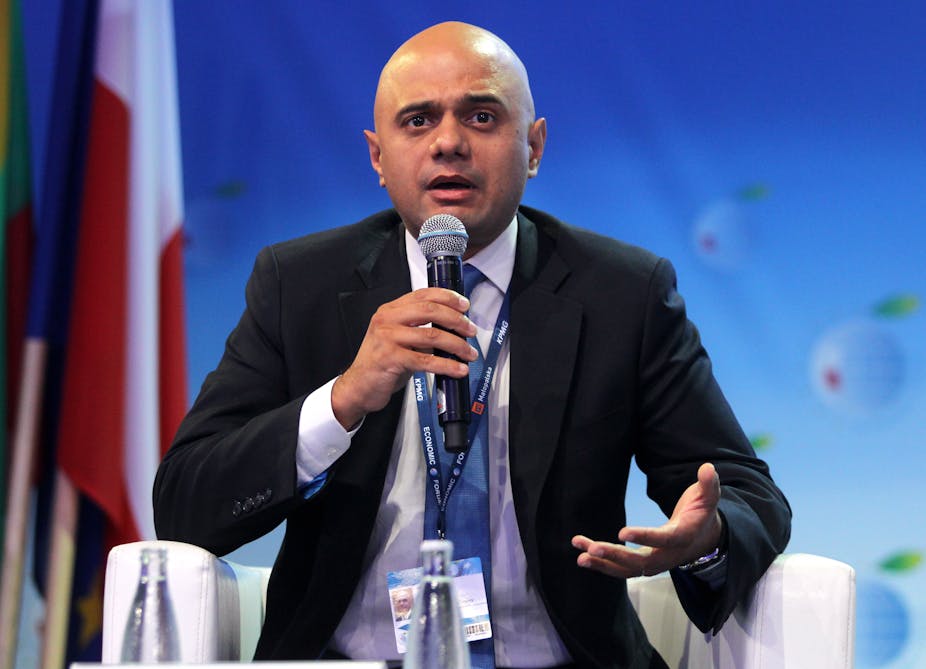There has been much discussion about the seemingly inherent lack of culture in those who have held the office of culture secretary. But in the light of Sajid Javid’s attitude to ticket-touting, one might well ask if his lack of cultural understanding doesn’t surpass them all.
Amid the outcry over the continuation of the expenses scandal which led to the the departure of Maria Miller, an immediate concern arose around the priorities of her successor. In particular, Javid’s stance on ticket touting has been widely condemned.
A quick recap. In 2011 Javid opposed a bill by Labour MP Sharon Hodgson, who proposed limiting the resale value of tickets to sporting and cultural events to only 10% more than their original value. Javid praised ticket touts as “classic entrepreneurs”, who fill a “gap in the market” and provide a “service”. He stated:
As someone who believes passionately in the virtues of the free market and who is on the side of the ordinary, common working man, I respectfully oppose the Bill… If a person wishes to devote a large part of their disposable income to see something that is disproportionately attractive to them, why should anyone else care and why should it be their business?
The answer to this question is most obvious in the case of the subsidised arts, hence the early involvement in the debate by the Royal Opera House. Like many other key organisations, the ROH receives a grant from Arts Council England in order to make tickets affordable, and opera (and ballet) available to anyone who might wish to access it. This is no free-market model of supply and demand.
Over 40% of ROH tickets are available at less than £40. Students are also entitled to last-minute sales at £10 each. And this low-cost (and sometimes even free) ticket availability is repeated in subsidised art forms nationwide.
Javid’s attitude to the mark-up and resale of subsidised tickets is utterly immoral. Touting reduces the number of people who are able to access the arts cheaply, and could legitimately be viewed as theft from the public purse.
The ultimate concern here is the incompatibility between Javid’s professed love of “the free market” and the public-access focus of many of our top arts institutions. This focus can be traced back to the post-war set-up of the Arts Council of Great Britain by John Maynard Keynes. The (now multiple) Arts Councils are funded by the taxpayer, via Javid’s own Department for Culture, Media and Sport.
In 1945 Clement Attlee’s government and Keynes had decided that the rebuilding of Britain after the physical, economic and emotional devastation of war would include a body that enabled and regulated public spending on the arts. A Royal Charter to this effect was issued in August 1946, introducing an Arts Council which aimed to develop greater knowledge, understanding and practice of the arts, and in particular “to increase the accessibility of the arts to the people”. This access must be geographical, social and financial.
In addition to “access”, other Arts Council aims include education and innovation. At heart, this means the bringing of new work to an audience that is primed to it and able to access it. So Arts Council support should mean affordable ticketing, support for new artists and new work and quality education programmes in institutions across the UK. These are the returns of public investment which aims to benefit the whole of society.
After almost 70 years of Arts Council existence, the ideals of access and education in relation to government funding of the arts are now so established as to be ingrained in UK arts practitioners at the highest levels. These inherited principles have become central to public arts companies in the UK.
To return to opera, this is, for many, the embodiment of organised culture, a concentrated centre of art (and of funding) with the potential to foster arts and culture of all kinds, including folk and popular forms. The public opera company must include access to and engagement with a vast array of arts. It must also be open to all, including the uninitiated, the underprivileged and the very young. And crucially, to those who could not afford a ticket on the “free market”.
With the pressure mounting from various organisations, we can only hope that the culture secretary will come to understand that the subsidised arts in the UK are not a free-market economy, but rather a model of cultural, social investment.

